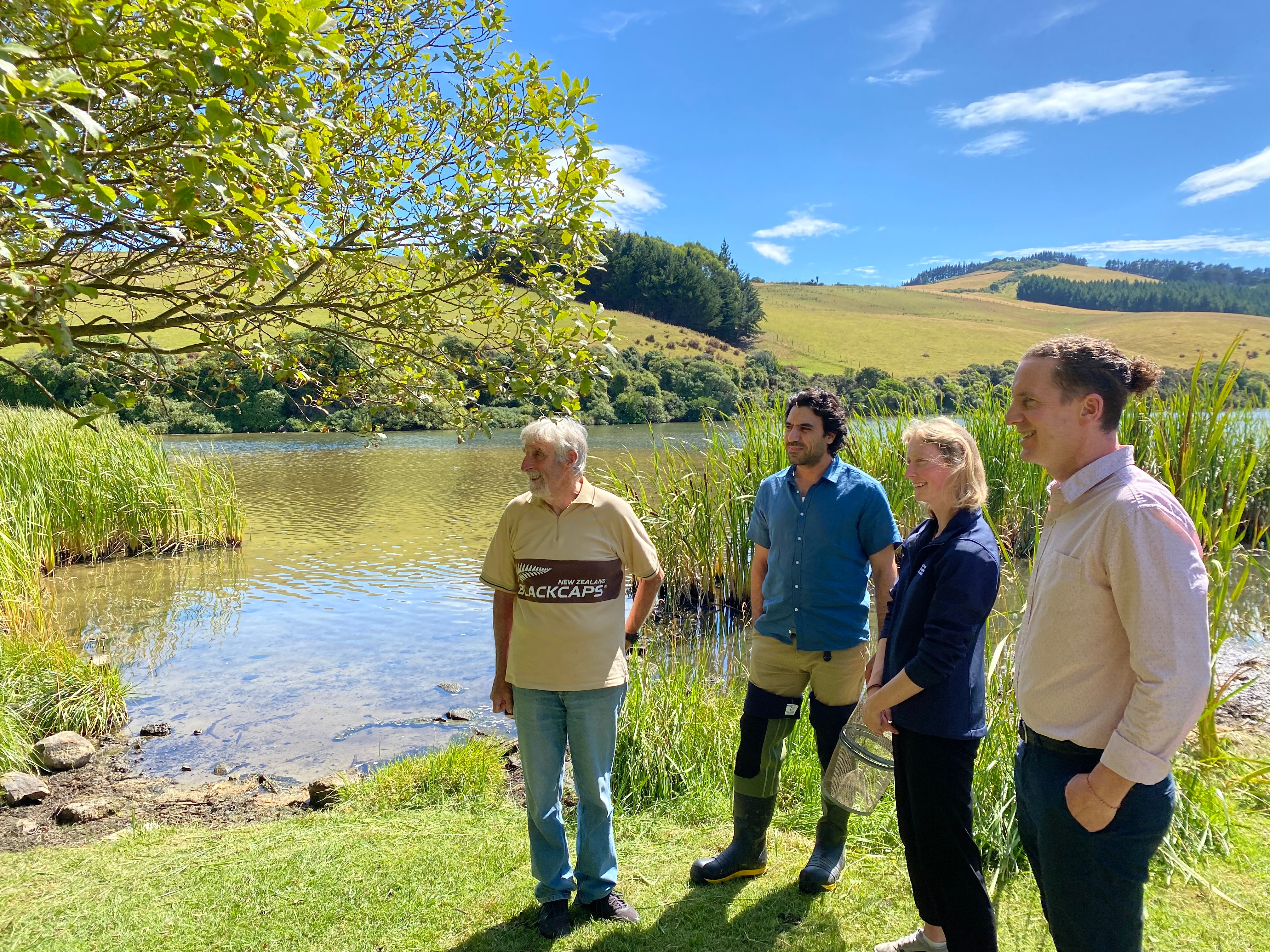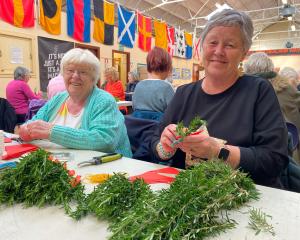The impact of the recent hot, dry weather in Dunedin is evident at Tomahawk Lagoon, where the water level is extremely low.

Yesterday, the Otago Regional Council (ORC) called for rural and urban water users to take care and use water resources more efficiently, as rivers and streams across the region run low, with the hot, dry weather set to continue.
ORC’s compliance manager Tami Sargeant said low flows could affect freshwater ecosystems, and increase the risk of toxic algae forming.
These concerns come against the backdrop of World Wetlands Day today, which aims to highlight the importance of wetlands and encourage their wise use and preservation.
At Tomahawk Lagoon, that focus is being stepped up, with the recent completion of a detailed catchment management plan by the ORC, and the formation of an active local community group, Tomahawk Lagoon Catchment Group.
Working closely with citizen science group Ecotago Charitable Trust and its supporting schools, they plan to work to help improve water quality, meet national standards, and support a healthy ecosystem at the lagoon.
Mr Innes said monitoring had shown the water quality was "not great, and there have been no significant improvements over the past six years".
"So if we can find ways to manage the catchment better, that will be good for everyone."
Freya Moore, who took up the role of ORC project delivery specialist, regional programmes in November, is responsible for several projects that focus on restoring and enhancing Otago’s freshwater quality and biodiversity. Her specific focus is on the Roto-nui-a-Whatu/Lake Tuakitoto catchment project, and the Tomahawk Lagoon Catchment project.

Ms Moore said the plan identified three main goals for the lagoon — the formation of a local catchment group, water quality data and an ecological assessment.
In addition, ORC had dedicated $260,000 over three years "to enhance the Tomahawk Lagoon catchment through community action to contribute to a healthy ecosystem for all to enjoy".
An ecological assessment is due to be completed by June, 2023, historical data analysis is under way and a field study is scheduled for March-April.
"We are very excited for this study and resultant recommendations, and to get some on-the-ground actions under way to enhance this unique system," Ms Moore said.
The newly formed community-led Tomahawk Lagoon Catchment Group would be vital to the upcoming work in the catchment and work would evolve over time.
The Ecotago citizen science team provided important data and community engagement opportunities, and the ORC was "keen to continue working closely with this dedicated group, and to collaborate in the restoration of the catchment".
"The direction for catchment enhancement will become much clearer once the ecological assessment is completed."
Tomahawk Lagoon Catchment Group founding member Steve Catty said to mark World Wetlands Day, the group would put out a short survey to the local community to ask what people valued in the area, and the main issues of concern.
"We are also keen to connect with people who are interested in taking an active part in helping to care for the lagoon."















